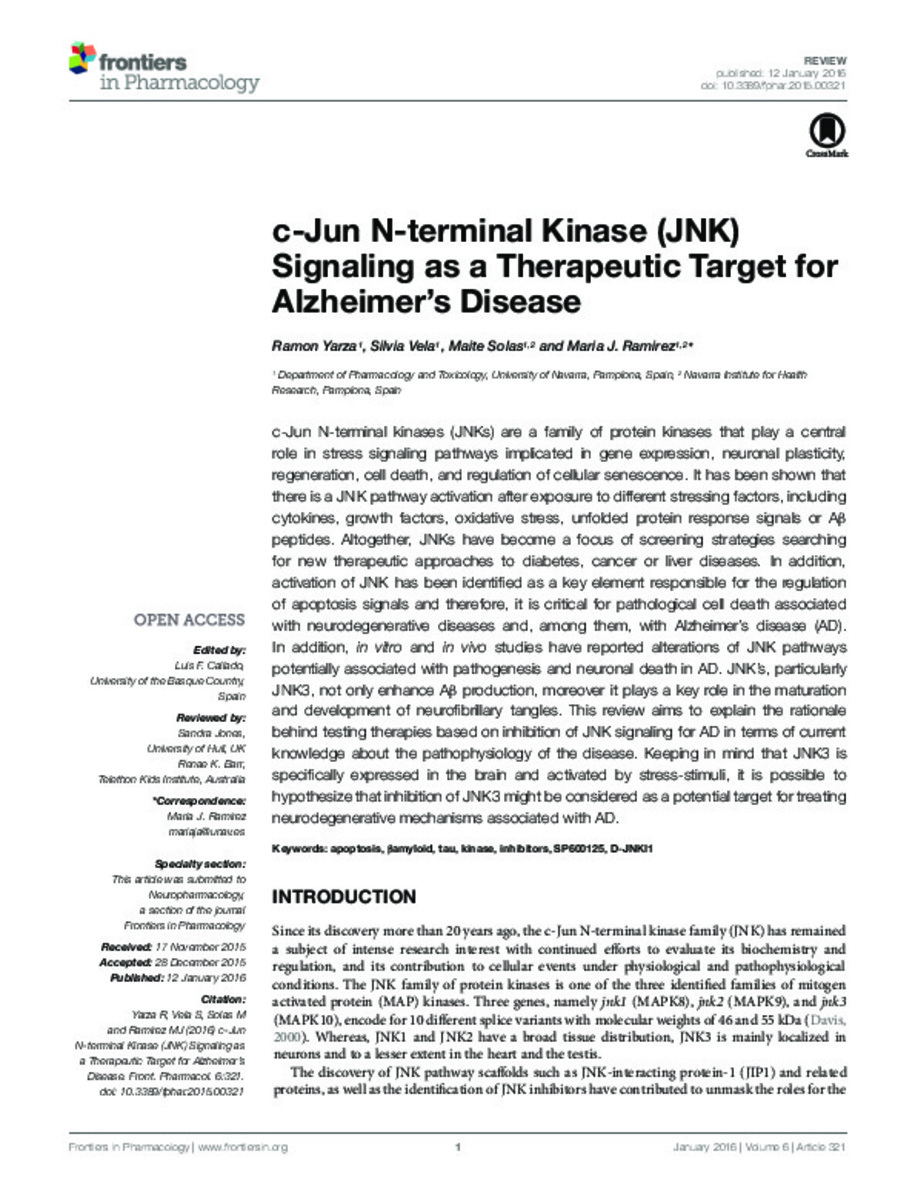c-Jun N-terminal Kinase (JNK) signaling as a therapeutic target for Alzheimer’s disease
Palabras clave :
Apoptosis
βamyloid
Tau
Kinase
Inhibitors
SP600125
D-JNKI1
Materias Investigacion::Ciencias de la Salud::Terapéutica
Fecha de publicación :
2016
Editorial :
Frontiers Media
Nota editorial :
This Document is Protected by copyright and was first published by Frontiers. All rights reserved. it is reproduced with permission
Nota:
Creative Commons Attribution License
Cita:
Yarza R, Vela S, Solas M and Ramirez MJ. c-Jun N-terminal Kinase (JNK) signaling as a therapeutic target for Alzheimer’s disease. Front Pharmacol 2016;6:321
Aparece en las colecciones:
Estadísticas e impacto
0 citas en

0 citas en

Los ítems de Dadun están protegidos por copyright, con todos los derechos reservados, a menos que se indique lo contrario.







